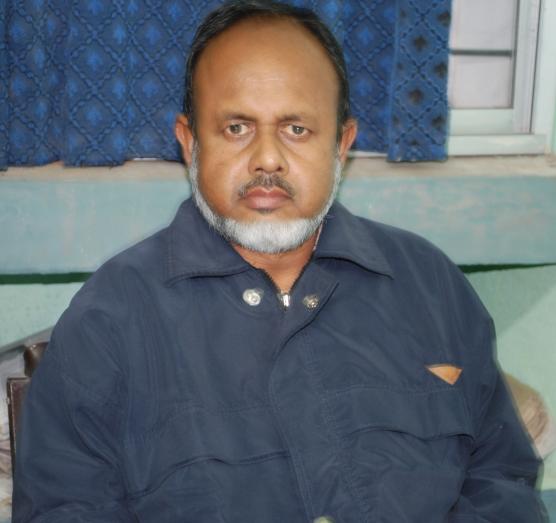First published on 3rd March 2014
Third Open Letter to Professor Ranjan Chakrabarti, Vice-Chancellor,
Vidyasagar University.
Dear Professor Chakrabarti,
Prologue
At the outset I must admit that your third meeting with the teachers of Vidyasagar University held on 27th February 2014 at the Birendranath Sasmal Hall was more systematic, if not less officious than the earlier two meetings held on 5th June and 7th October 2013. My earlier open letters and your replies are now uploaded in a San Francisco based academic website (Academia.edu) accessible through Google, as recorded documents of the meetings held by a vice-chancellor with the teachers of Vidyasagar University under the new political regime of West Bengal.(1) These letters have now found their niche in the global cyberspace with open letters of students, teachers, and vice-chancellors of various universities including Delhi University, JNU and AMU.(2)
Meetings or hegemonic discourse?
Kindly allow me to begin with the list of agenda which was circulated to the teachers ahead of the meeting. The last agendum of the meeting ‘Any other matter with permission of the Chair’ was really out of the ordinary! I only wonder whether you would instruct your Secretaries or the Registrar to write such an agendum for the meeting of the Court, Executive Council, Faculty Councils for PG & UG Studies or not? Could any Head of Department or Principal of a College write such words in the last agendum of any meeting? I have not yet seen such an agendum during my whole teaching career at Vidyasagar University since 1985.
True, you are the academic and administrative head of our university, but does it mean that you also have the power to decide what issues should be raised by the teachers under ‘Miscellaneous’ or ‘Any other matter’? If you had time constraints, then there was no need to put the third agendum. This approach, I believe, emanated from the uneasiness (nervousness?) regarding the issues and problems which might have been raised by the teachers. If you take my statement as the null hypothesis, then it was proved wrong at least twice when Professor Madhumangal Pal and Dr.Keshab Chandra Mondal wanted to discuss the problems of publication of the last Ph.D course work examination result, which is being delayed owing to lack of proper coordination and allocation of duties to the concerned sections of the university. You did not allow the aforesaid faculties to proceed and ironically, the issue was under the second item of your list of agenda, viz. ‘Matters related to academic and infrastructural development of the University’. This is how the powers vested in the third agendum engulfed the issues raised under the second. My colleagues in Political Science may find academic interest in the phenomenon.
In the second instance, when the Dean, Faculty of Arts and Commerce, wanted to initiate a feedback on the first newsletter (the credit for the publication of which definitely goes to your leadership) from the teachers, you simply stopped the inflow of opinion by saying, ‘There are many shortcomings and there will be more. The teachers wanted a newsletter and that has been published and that’s all….’
Through my experiences of working at this university and daily interactions with the teachers, I could sense that in these quasi formal meetings majority of the faculties generally come to express their problems, not solutions. They also know it very well that the problems cannot be solved through these meetings. So, what they want is a sympathetic and patient hearing by the highest authority of the university, not just quick quips and smart answers to the issues raised by them and you excelled your predecessors in this domain.(3). No teacher wants that the vice-chancellor would find fault in them and this does not mean that the teachers are faultless, but the fact is, these meetings become arenas of verbal fencing and you have won in most of the rounds since you are the head of the institution and your word is the last word.(4) As a result, the culture that is emerging from these hegemonic discourses may not be congenial to build up solidarity within the university community. We should remember that all of us would have to work united before the NAAC team. Verbal fencing would only lead us to blind alleys. The teachers should also keep this truth in their mind. Be that as it may, since you have made the meeting formal by issuing a list of agenda and our signatures were recorded, I fervently request you to instruct your Secretary to write up the proceedings/minutes of the meetings and get them signed by the Registrar of the university and give a copy of the same to all the teachers at your earliest convenience. Otherwise, these meetings will simply lose their weight within a short period of time.
Two anecdotes
During the tenure of the former vice-chancellor, Professor Swapan Kumar Pramanick, when I was the HOD of Anthropology, I suggested him to do some homework at the internet to study the activities of vice-chancellors of universities which were very much successful in dealing with NAAC teams. I studied some of them. In one case, the vice-chancellor met the NAAC team at the airport and gave a brief overview of the university in power point right in the airport! I do not know whether Professor Pramanick did the homework or not. I could at least understand from his facial expression that he did not appreciate my suggestion. At that time, I did not have any reading on hegemonic discourse. Just another anecdote. In 2006, the vice-chancellor, P. Maruthamuthu of Madurai Kamaraj University at the reception of the NAAC peer team during the re-accreditation process made a power point presentation to the team about the progress made by the university ever since it first received its accreditation more than five years ago. He explained in detail the achievements of various teaching departments and initiatives taken to modernise the administration. Professor Ananda Deb Mukhopadhyay, former vice-chancellor of Vidyasagar University led the aforementioned NAAC peer team as chairperson. (5). These are past anecdotes, which I want to share with you and please do not consider them as stories with morals. I always keep in mind your encouraging statement at our department: ‘Forget the past, look forward.’(6).
Refreshing tea, hefty snacks, and the ‘Animal Farm’
Thank you very much for the tea and the good snacks you have arranged for us on the day of the meeting and I initially thought that those who were on the stage would only enjoy the privilege of having tea since it was served in china clay cups within the hall only to those on the stage. But I was wrong. After about 45 minutes, with your kind permission, I walked out of the meeting hall and got a wonderful snack packet. Fresh and hot tea was also there for us that is who were not on the stage. I was hungry and enjoyed the snacks and the tea, and asked the Registrar whether I would be allowed to re-enter the meeting hall, since I took permission from the Chair only to leave the hall to take tea. Furthermore, I was also eager to listen to the discourse. However, I came to know that I should not enter the hall with the cup of tea. The prohibition reminded me of George Orwell’s allegorical novel Animal Farm. I realised the significance of the famous line of the novel. Mutatis mutandis, it ran like this: All are equal but some are more equal than others. Of course, I did not disclose my feeling to Dr. J.K. Nandi. Instead, I praised him for implementing such an environment-friendly prohibition.
Epilogue
Thank you once again vice-chancellor sir, for your desire to meet us at regular intervals in which you enthused us with encouraging words, satirical remarks and witty comments, that gave relief to me from the daily routine of our vocation. I strongly believe that we would be able to showcase our academic performance in a befitting manner before the NAAC team as we did quite successfully on earlier occasions.
With my warmest regards,
Dr.Abhijit Guha
Notes:
(1)vidyasagar.academia.edu/AbhijitGuha/OPEN-LETTERS
(2)www.universityexpress.co.in/delhiuniversity/2014/02/open-letter-vc-du; www.mainstreamweekly.net › Archives (2006 on) › 2007 › June 30, 2007(accessed through Google on 28.02.2014); https://www.facebook.com/Aligarh.Muslim.../10151612021162941(Accessed through Google on 28.02.2014)
(3)In one such meeting in the formative period of Vidyasagar University, in the early 90s when UGC was unwilling to issue any capital grant to us, an eminent anthropologist Professor Pranab Ganguly (the founder HOD of VU Anthropology Dept.) openly compared the vice-chancellor with the captain of a sinking ship and suggested that the VC should stand on the deck even after the ship had sunk. It was Professor Ganguly who said that adding the phrase ‘Tribal Culture’ in the title of the Anthropology Department of VU was like adding Algebra with the name of Applied Mathematics Department! The then VC and the 10 member expert committee agreed with Ganguly, whose reemployment was later discontinued.
(4)Kindly recall your exchange with Professor Somenath Roy on the issue of ‘Animal house’ in the last meeting on 7th October 2013.
(5)www.hindu.com/2006/03/27/stories/2006032719770300.htm (Accessed through Google on 01.03.2014).
(6) In my opinion, the best statement by a vice-chancellor in meetings with the teachers at Vidyasagar University was made by Professor Amiya Kumar Dev, who frankly admitted his limitations by saying ‘Always remember that life is a series of compromises’. I disagreed with him but still rank Amiyababu as the best vice-chancellor of our university.
















